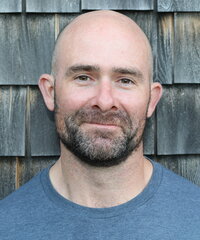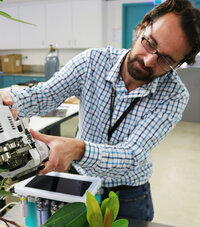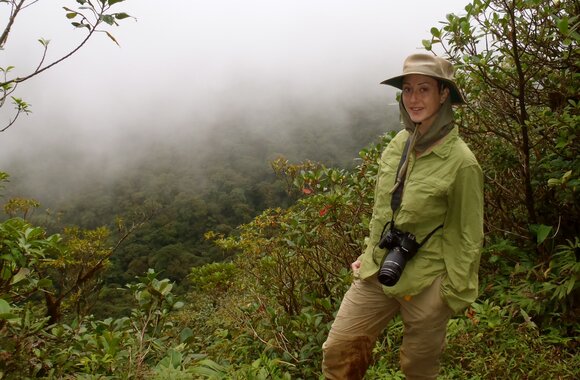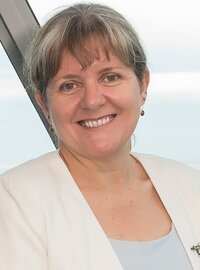
Credit: z_wei/Getty Images
Finished your PhD? Six questions to ask yourself about what’s next
There is no single path to success, so here's a plan to help you choose.
13 October 2020

z_wei/Getty Images
Early career researchers can find it challenging to decide what to do next after dedicating years to their PhD.
There are many different paths that can lead to a successful career, from increasing your publication numbers or transitioning to a different lab or institution to acknowledging that what you really need is a break.
Nature Index asked five researchers for their insights on what to do after completing a PhD.
1. Pursue your passion project – even if it’s niche
“I can’t emphasise enough that science has to be something you love doing,” says biologist Aaron MacNeil from Dalhousie University in Canada, who studies marine conservation, focussing on species such as reef sharks and monkfish.

Aaron MacNeil
But what if you’ve been researching a niche topic that will only ever have small amounts of funding and a small pool of collaborators?
To balance passion and productivity, geneticist Marguerite Evans-Galea from Australia’s Murdoch Children’s Research Institute suggests running two projects in parallel, even if one is an offshoot of the other. She notes, for example, that some of the greatest techniques in conservation were borrowed from economics.
Pursuing a research area that’s more advanced and can garner more funding gives you the opportunity to continue working on your niche area where time permits.
Ask yourself: Now that you no longer have the structure of a PhD program in place to support your passion project, do you have the right collaborators to help keep the momentum up?

Alessandro Ossola
2. Move to a different lab or institution
“To grow academically and personally, you need exposure to new ideas, people and places,” says Alessandro Ossola, an urban ecology researcher at Macquarie University in Sydney, Australia.
Ossola made several unsuccessful postdoc applications towards the end of his PhD before winning a fellowship with the United States’ National Research Council (NRC). Ossola says his experience working with the NRC gave him a better understanding of government procedures, which has helped him pursue research that can make a tangible difference to people’s lives.
Moving cities or even countries can be an excellent career decision to gain new skills and a wider network of collaborators.
While the pandemic may prevent such moves just now, Terry Ord, an evolutionary ecologist at the University of New South Wales in Sydney, Australia, recommends that new PhD graduates use this time to research the labs and institutes that interest them, connecting with their researchers via Zoom.
Ask yourself: What preparation work can I do now to ensure that I’m in a good place to make a move once travel restrictions are lifted?

Trisha Atwood. Credit: Edd Hammill
3. Switch fields and work your way up again
Some researchers may consider switching fields. The competitive research environment can make it difficult to catch up, but not impossible.
After completing her PhD, Trisha Atwood, assistant professor in the Department of Watershed Sciences and the Ecology Center at Utah State University in Logan, Utah, left the US to do a postdoc on an unfamiliar research topic (carbon storage in marine systems) at Australia’s University of Queensland.
“That opportunity reshaped my research and catapulted my career,” she says. “I got to work with some of the most productive, creative, and nicest people I’ve ever met in research.”
Although working your way back up in a new field may be daunting, Atwood says there are advantages. “If you can integrate aspects of your past field with your current one, you may be able to do something truly transformational.”
Ask yourself: Are you ready to ‘start again’ in a new field and work your way up, and do you have a supportive environment to get you through the initial challenges?
4. Stay the course and focus on publishing
Publications are important, but it’s not just a numbers game, says Evans-Galea. “To compete on the international stage, you need to be publishing quality over quantity, driving change and making a difference.”
Evans-Galea recommends reading often, which can deepen and broaden your knowledge base and make you a better and more productive writer.

Marguerite Evans-Galea
And while you can’t always be publishing ground-breaking work, Ord recommends that young researchers challenge themselves to turn an average paper into something better, by packaging it with a meta-analysis, for instance, or using a null finding to challenge an accepted paradigm.
Ask yourself: Which papers do I truly admire, and what elements can I take from those to improve my own manuscripts?
5. Consider an industry role
A PhD can be a distinct advantage when pursuing an industry role. If this appeals to you, investigate what industries relevant to you are looking for, as corporate organizations tend to value expertise differently to academic institutions.
Some industries value communication and teamwork skills more highly than individual achievement, for example.
Networking can be the key to gaining a good position with industry. Isaiah Hankel, a business consultant and author, contacted employers on LinkedIn after completing his PhD in anatomy and cell biology at the University of Iowa. He attended networking events and organized chats and site visits with prospective employers before being hired as an application scientist at biosciences company FlowJo.
Ask yourself: Am I comfortable leaving academia for at least the next few years, to further my career?
6. Take time off, but keep up your connections
If you’re not ready to make a decision on next steps, you may be able to step away for a while.
This can be especially useful if you’re yet to publish a paper. MacNeil suggests taking on a part-time job if possible and using your spare time to write up and publish papers based on your thesis work.
It’s important to treat your break as a breather – not a holiday – so you don’t feel too far behind once you’re ready to return to research. Keep up connections and volunteer at conferences while working on publications. You could also take writing courses or create an academic blog.
Ask yourself: Are you ready to jump straight into another high-pressure environment, or would you be better off taking some time to recoup, publish, and explore your options?
